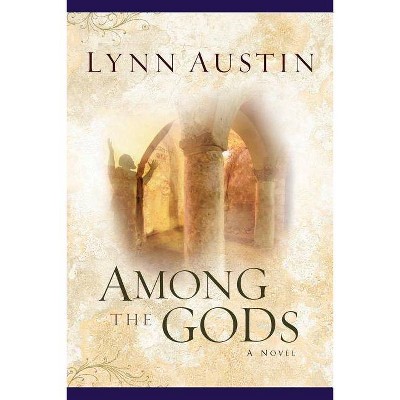About this item
Highlights
- After several centuries of controversy, the early church came to an uneasy consensus that Jesus was both fully human and fully divine.
- About the Author: Michael F. Bird is the Academic Dean and Lecturer in Theology and New Testament at Ridley College.
- 480 Pages
- Religion + Beliefs, Christian Theology
Description
About the Book
After several centuries of controversy, the early church came to an uneasy consensus that Jesus was both fully human and fully divine. In his divinity, orthodox Christianity claimed, he shared fully in the nature of the uncreated creator God. But was this doctrinal position crafted from whole cloth in the era of the great ecumenical councils? How did earlier Christ-followers understand Jesus in light of their convictions about the one supreme deity and in the context of a cultural milieu saturated with gods? In Jesus among the gods, Michael Bird gives renewed attention to divine ontology--what a god is--in relation to literary representations of Jesus. Most studies of the origins of early Christology focus on christological titles, various functions, divine identity, and types of worship. The application of ontological categories to Jesus is normally considered something that only began to happen in the second and third centuries as the early church engaged in platonizing interpretations of Jesus. Bird argues, to the contrary, that ontological language and categories were used to describe Jesus as an eternal, true, and unbegotten deity from the earliest decades of the nascent church. Through comparison with representative authors such as Philo and Plutarch, and a comprehensive analysis of Jesus and various intermediary figures from Greco-Roman religion and ancient Judaism, Bird demonstrates how early accounts of Jesus both overlapped with and diverged from existing forms of religious expression. However Jesus resembled the various divine agents of Greco-Roman religion and Second Temple Judaism, the chorus of early Christian witnesses held Jesus to be simultaneously an agent of and an analogue with the God of Israel. Among the gods, Jesus stood in clear relief, a conviction that may have been refined over time but that belongs to the emerging heart of Christian confession.Book Synopsis
After several centuries of controversy, the early church came to an uneasy consensus that Jesus was both fully human and fully divine. In his divinity, orthodox Christianity claimed, he shared fully in the nature of the uncreated creator God. But was this doctrinal position crafted from whole cloth in the era of the great ecumenical councils? How did earlier Christ-followers understand Jesus in light of their convictions about the one supreme deity and in the context of a cultural milieu saturated with gods?
In Jesus among the gods, Michael Bird gives renewed attention to divine ontology--what a god is--in relation to literary representations of Jesus. Most studies of the origins of early Christology focus on christological titles, various functions, divine identity, and types of worship. The application of ontological categories to Jesus is normally considered something that only began to happen in the second and third centuries as the early church engaged in platonizing interpretations of Jesus. Bird argues, to the contrary, that ontological language and categories were used to describe Jesus as an eternal, true, and unbegotten deity from the earliest decades of the nascent church.
Through comparison with representative authors such as Philo and Plutarch, and a comprehensive analysis of Jesus and various intermediary figures from Greco-Roman religion and ancient Judaism, Bird demonstrates how early accounts of Jesus both overlapped with and diverged from existing forms of religious expression. However Jesus resembled the various divine agents of Greco-Roman religion and Second Temple Judaism, the chorus of early Christian witnesses held Jesus to be simultaneously an agent of and an analogue with the God of Israel. Among the gods, Jesus stood in clear relief, a conviction that may have been refined over time but that belongs to the emerging heart of Christian confession.
Review Quotes
"... readers interested in an overview of the relevant material and current debates in this area of scholarship would do well to read Bird's contribution."
--Kendall A. Davis "Concordia Journal""Bird's scholarship is a monumental contribution to the field of early Christology. His mastery of both primary and secondary sources is profound. Bird's engagement with patristic writings, New Testament Apocrypha, Rabbinic literature, early Christian writings, Greco-Roman authors, and multiple other relevant texts highlights the copious amount of literature needed to properly grasp early Christology in the Greco-Roman world. This is a valuable book for those not only seeking to gain a broader and deeper comprehension of early Christologybut also wishing to engage with the Greco-Roman world."
--Zachary R. Kime "Calvin Theological Journal"All in all this work has been written both with great erudition and with a clear passion. It is a fundamental study in the continuing search for the origins and developments of christology.
--Riemer Roukema, Protestant Theological University "Bryn Mawr Classical Review"A masterwork of historically informed theology, Bird's Jesus Among the Gods will compel scholars to revise the standard narrative of how Christology developed.
--Matthew W. Bates, author of The Birth of the Trinity; Professor of Theology, Quincy University "OnScript"About the Author
Michael F. Bird is the Academic Dean and Lecturer in Theology and New Testament at Ridley College.












